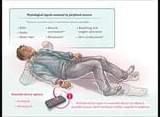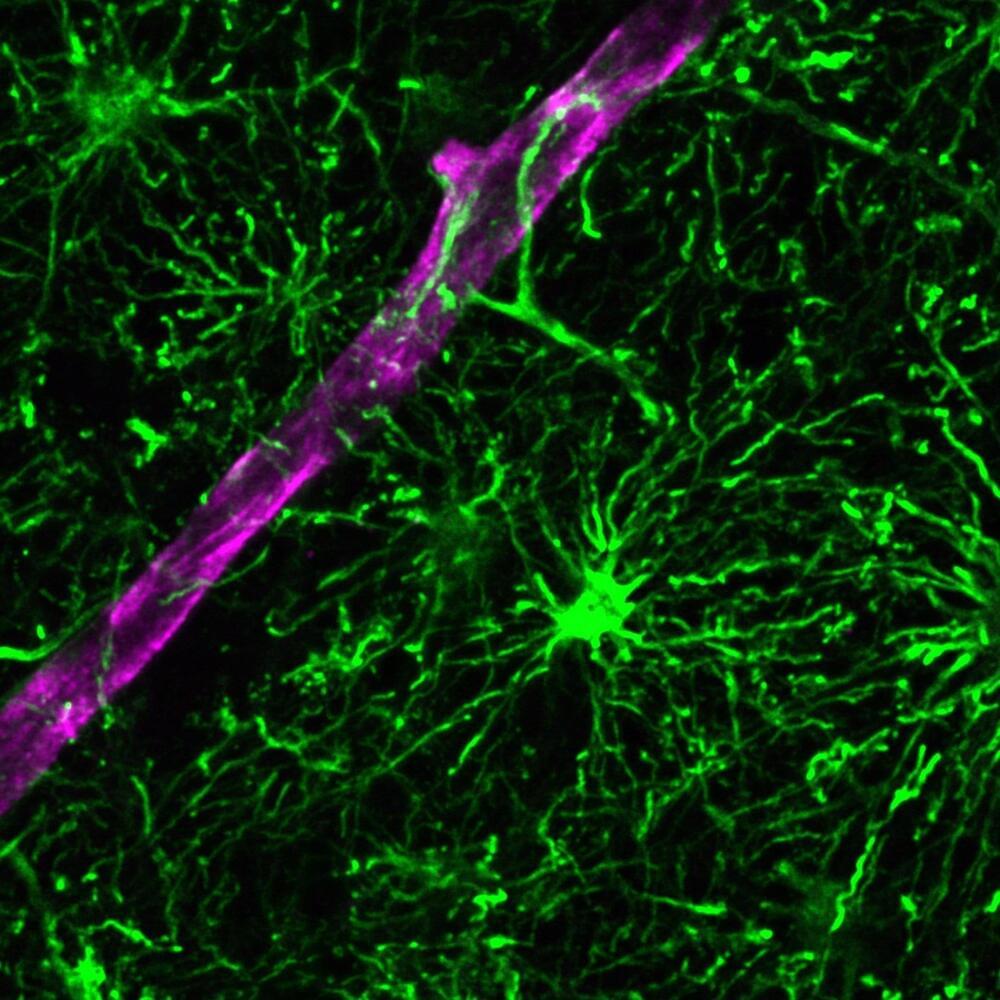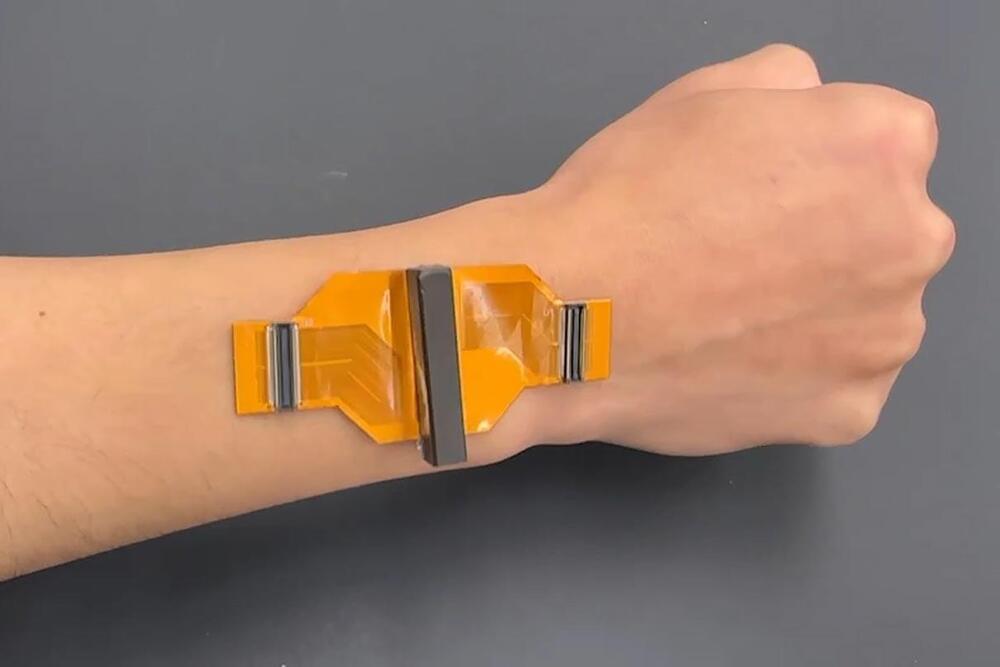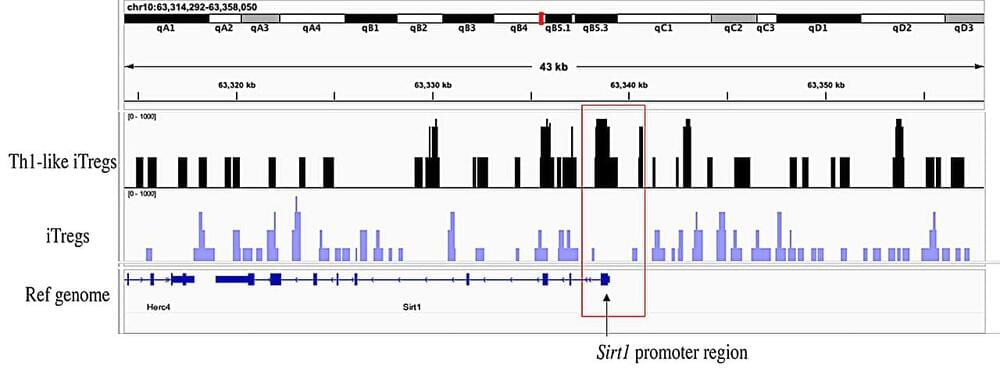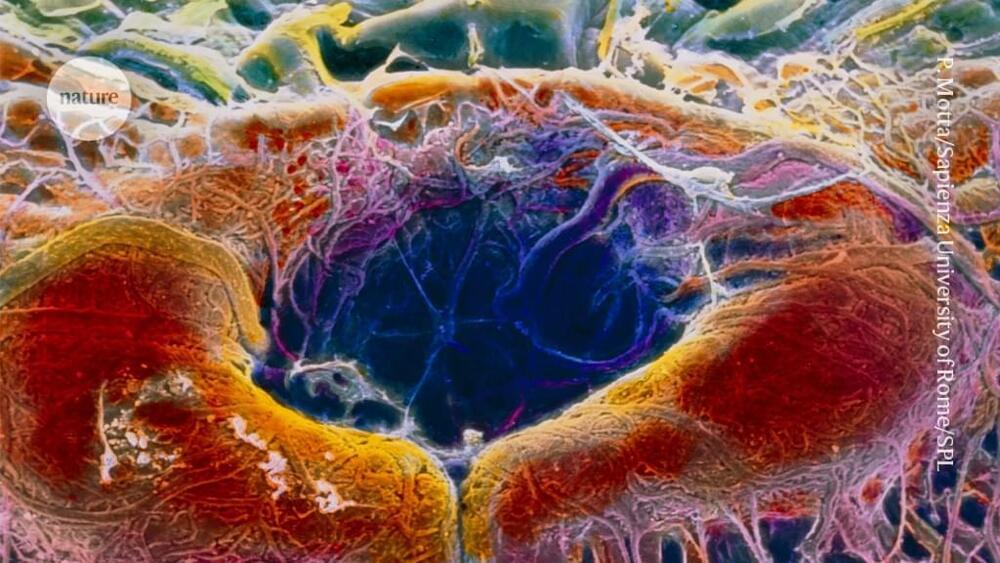Archive for the ‘biotech/medical’ category: Page 250
Feb 28, 2024
Insulin-inhibitory receptor research offers hope for type 2 diabetes therapy
Posted by Shubham Ghosh Roy in category: biotech/medical
Research targeting the insulin-inhibitory receptor, or inceptor, unveils promising avenues for beta cell protection, offering hope for causal diabetes therapy.
A novel study in mice with diet-induced obesity demonstrates that the knock-out of inceptor enhances glucose regulation, prompting its further exploration as a drug target for type 2 diabetes treatment.
These findings, led by Helmholtz Munich in collaboration with the German Center for Diabetes Research, the Technical University of Munich, and the Ludwig-Maximilians-University Munich, drive advancements in diabetes research. They have been published in Nature Metabolism.
Feb 28, 2024
ChatGPT aids in discovering potential Alzheimer’s treatments through drug repurposing
Posted by Shubham Ghosh Roy in categories: biotech/medical, neuroscience
https://www.news-medical.net/news/20240228/ChatGPT-aids-in-d…osing.aspx Nature
ChatGPT-4 to identify drug repurposing candidates against Alzheimer’s disease (AD).
Feb 28, 2024
Wearable Digital Health Technology for Epilepsy
Posted by Shubham Ghosh Roy in categories: biotech/medical, health, wearables
Review Article from The New England Journal of Medicine — Wearable Digital Health Technology for Epilepsy.
Feb 28, 2024
More than just neurons: Scientists create new model for studying human brain inflammation
Posted by Shubham Ghosh Roy in categories: biotech/medical, life extension, neuroscience
The brain is typically depicted as a complex web of neurons sending and receiving messages. But neurons only make up half of the human brain. The other half—roughly 85 billion cells—are non-neuronal cells called glia.
The most common type of glial cells are astrocytes, which are important for supporting neuronal health and activity. Despite this, most existing laboratory models of the human brain fail to include astrocytes at sufficient levels or at all, which limits the models’ utility for studying brain health and disease.
Now, Salk scientists have created a novel organoid model of the human brain—a three-dimensional collection of cells that mimics features of human tissues—that contains mature, functional astrocytes. With this astrocyte-rich model, researchers will be able to study inflammation and stress in aging and diseases like Alzheimer’s with greater clarity and depth than ever before.
Feb 28, 2024
Light stimulates a new twist for synthetic chemistry
Posted by Saúl Morales Rodriguéz in categories: biotech/medical, chemistry, computing
Molecules that are induced by light to rotate bulky groups around central bonds could be developed into photo-activated bioactive systems, molecular switches, and more.
Researchers at Hokkaido University, led by Assistant Professor Akira Katsuyama and Professor Satoshi Ichikawa at the Faculty of Pharmaceutical Sciences, have extended the toolkit of synthetic chemistry by making a new category of molecules that can be induced to undergo an internal rotation on interaction with light. Similar processes are believed to be important in some natural biological systems.
Synthetic versions might be exploited to perform photochemical switching functions in molecular computing and sensing technologies or in bioactive molecules, including drugs. Their report is pending in Nature Chemistry.
Feb 28, 2024
Linking environmental influences, genetic research to address concerns of genetic determinism of human behavior
Posted by Saúl Morales Rodriguéz in categories: biotech/medical, genetics, neuroscience
It has long been known that there is a complex interplay between genetic factors and environmental influences in shaping behavior. Recently it has been found that genes governing behavior in the brain operate within flexible and contextually responsive regulatory networks. However, conventional genome-wide association studies (GWAS) often overlook this complexity, particularly in humans where controlling environmental variables poses challenges.
In a new perspective article published on February 27 in the open-access journal PLOS Biology by researchers from the University of Illinois Urbana-Champaign and Rutgers University, U.S., the importance of integrating environmental effects into genetic research is underscored. The authors discuss how failure to do so can perpetuate deterministic thinking in genetics, as historically observed in the justification of eugenics movements and, more recently, in cases of racially motivated violence.
The authors propose expanding GWAS by incorporating environmental data, as demonstrated in studies on aggression in fruit flies, in order to get a broader understanding of the intricate nature of gene-environment interactions. Additionally, they advocate for better integration of insights from animal studies into human research. Animal experiments reveal how both genotype and environment shape brain gene regulatory networks and subsequent behavior, and these findings could better inform similar experiments with people.
Feb 28, 2024
MIT’s Wearable Ultrasound Sticker Monitors Health of Deep Internal Organs
Posted by Saúl Morales Rodriguéz in categories: biotech/medical, health, wearables
MIT ’s ultrasound sticker enables continuous monitoring of organ stiffness, revolutionizing the early detection of diseases such as liver and kidney failure.
MIT engineers have developed a small ultrasound sticker that can monitor the stiffness of organs deep inside the body. The sticker, about the size of a postage stamp, can be worn on the skin and is designed to pick up on signs of disease, such as liver and kidney failure and the progression of solid tumors.
In an open-access study published recently in Science Advances, the team reports that the sensor can send sound waves through the skin and into the body, where the waves reflect off internal organs and back out to the sticker. The pattern of the reflected waves can be read as a signature of organ rigidity, which the sticker can measure and track.
Feb 28, 2024
Researchers identify enzyme key to training cells to fight autoimmune disorders
Posted by Shubham Ghosh Roy in categories: biotech/medical, evolution
Researchers at the University of Massachusetts Amherst recently released a first-of-its-kind study focusing on the rare autoimmune disorder aplastic anemia to understand how a subset of cells might be trained to correct the overzealous immune response that can lead to fatal autoimmune disorders. The research, published in Frontiers in Immunology, identifies a specific enzyme known as PRMT5, as a key regulator of suppressive activity in a specialized population of cells.
The human immune system is a marvel of evolution. When a pathogen enters the body, immune cells can identify it, call for backup, attack the pathogen, and then, when the threat has been eradicated, return to a peaceful state. But sometimes, as in the rare autoimmune disorder aplastic anemia, something goes wrong.
In patients with aplastic anemia, the aberrant immune cells, in this case Th1 cells, misidentify healthy stem cells in bone marrow as pathogenic and attack them. Without these bone marrow stem cells, the body can’t make white blood cells to fight infections, red blood cells to carry oxygen throughout the body, or platelets that help stop bleeding.
Feb 28, 2024
The surprising link between gut bacteria and devastating eye diseases
Posted by Shubham Ghosh Roy in categories: biotech/medical, genetics
Finding raises hopes that antibiotics could treat some genetic diseases that can cause blindness — but also prompts doubts.



